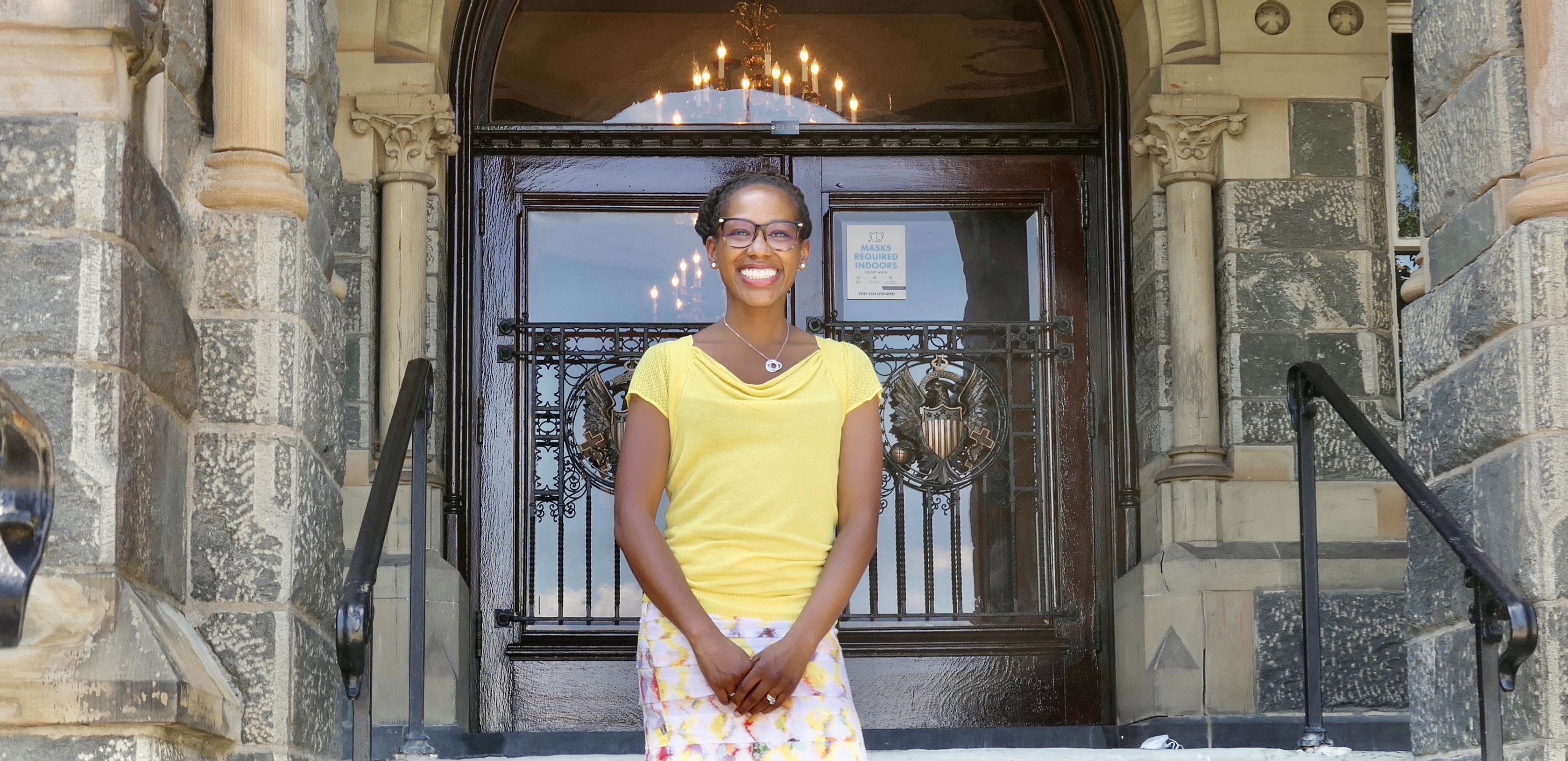Content warning: This article references sexual violence
Dr. Nadia Brown begins her tenure as director of Georgetown’s Women’s and Gender Studies (WGST) program this semester. After accepting the position more than a year ago, Brown is taking over from You-Me Park, who joined the program in 2004.
Brown’s hiring comes after years of student appeal for an established WGST department, which Georgetown lacks. An expansion of current resources and staff members, as well as course offerings and mentorship, would be essential to the program’s growth.
Brown began her work on Aug. 1, laying the foundation for community outreach. “Any time you come to a new institution there’s a considerable learning curve to figure out not just the norms, but the things that are written and unwritten,” she said in an interview with the Voice. Brown, a former associate professor of political science and African American studies at Purdue, began early dialogues about her future work in the WGST program after she was extended an offer in early 2020. She accepted the tenured position and began the following year.
The hiring coincided with student advocacy efforts calling for Georgetown to provide greater support for the program, invest in more comprehensive Title IX resources, and hire a WGST director for a permanent department. These priorities were among the demands of Georgetown’s student Black Survivors’ Coalition (BSC), which staged a sit-in in front of President John DeGioia’s office in the spring of 2020 calling for greater support and care for students of color and Black survivors of sexual assault. Establishing an official WGST department, in line with BSC’s goals, would put Georgetown on par with peer institutions that allocate greater institutional resources to the field.
Brown, who is Black, named student activism as a major draw for her in considering the role. “I’ve been extremely outspoken about the role of sexual harassment and violence in the discipline. The students’ energy and commitment to these issues were what made me want to come to Georgetown,” she said.
In her work at the #MeTooPoliSci project, which benefited from a multi-year National Science Foundation grant, Brown and colleagues study how to implement interventions against harassment and leverage professional associations to model best practices. Her published scholarship has investigated the barriers Black women face in the political arena, particularly their perception among voters.
Brown’s colleagues have spoken positively about her scholarship, noting her contribution to research on sexual assault within the academy. “Brown is nationally recognized for her work on sexual assault and specifically sexual harassment in academia which is an area that—perhaps for obvious reasons—ambitious academics have avoided,” adjunct WGST professor Sara Collina wrote in an email to the Voice. “I really can’t think of anyone better suited to deepen and broaden the scope of the Georgetown Women’s and Gender Studies program.”
As she settles into her new role, Brown will focus on a range of targets for the program to achieve. “My charge from the Dean’s Office was to build the program and hopefully get more faculty buy-in and really bring some new life and energy to the program,” Brown said.
WGST currently relies heavily on adjunct faculty to teach many of its courses and does not benefit from the same institutional support as recognized departments on campus. Part of Brown’s efforts to add to WGST offerings include building out fellowship and affiliate programs to create more continuity for students and provide faculty members with a voice in long-term decision-making.
Among the many issues Brown will seek to address is the uncertain status of the program’s “Title IX for a New Generation” class, which was offered twice in 2020 before its absence from the schedule for the past two semesters. Collina, who taught the popular student-designed course, and the students who have taken the class continue to emphasize its importance to the program curriculum and knowledge of Title IX on Georgetown’s campus. Georgetown’s rates of sexual violence are higher than its peer institutions, making institutional changes, robust education, and support systems essential. At the end of each semester, students proposed action plans to administrators on how best to address Title IX issues on campus.
“I want the [Title IX class] to be offered,” Brown said. Prior to the beginning of her term, she also had the opportunity to visit some of the class’s final presentations, which focused on the law’s practical implications and its importance for Georgetown. “I was just floored by the quality of the student projects,” she said.
Education about Title IX has implications beyond law and the classroom, according to Collina, who wrote, “I have also learned that an astonishingly large percentage of my students have never had any meaningful sex education.”
Compounding the issue of gaps in students’ sexual education is the lack of bystander training for this year’s first year and sophomore classes. The in-person, five-hour training previously instructed all new students in techniques for understanding definitions of sexual violence, effectively intervening to protect peers, and being empathetic supporters of survivors. Due to COVID-19 and the staffing restrictions placed on numerous campus centers, Health Education Services was unable to complete the mandatory training virtually.
Looking forward, Brown plans to conduct listening sessions and meetings with previous members of the program, current students, and new participants. One of the first opportunities to hear from the community will be a welcome event co-sponsored by the Women’s Center and LGBTQ+ Resource Center at 2 p.m. on Friday, Sept. 10 on the Leavey Esplanade. By making herself a public presence on campus, Brown hopes to draw new interested students and faculty to expand WGST’s reach.
“My biggest hope is that [Brown] will grow the program into a department so Georgetown can have what all of its peer institutions already have: a Department dedicated to the important discipline of gender studies,” Collina wrote. “Students should be at the forefront of that conversation, so there has never been a better time to get involved in the WGST program!”







